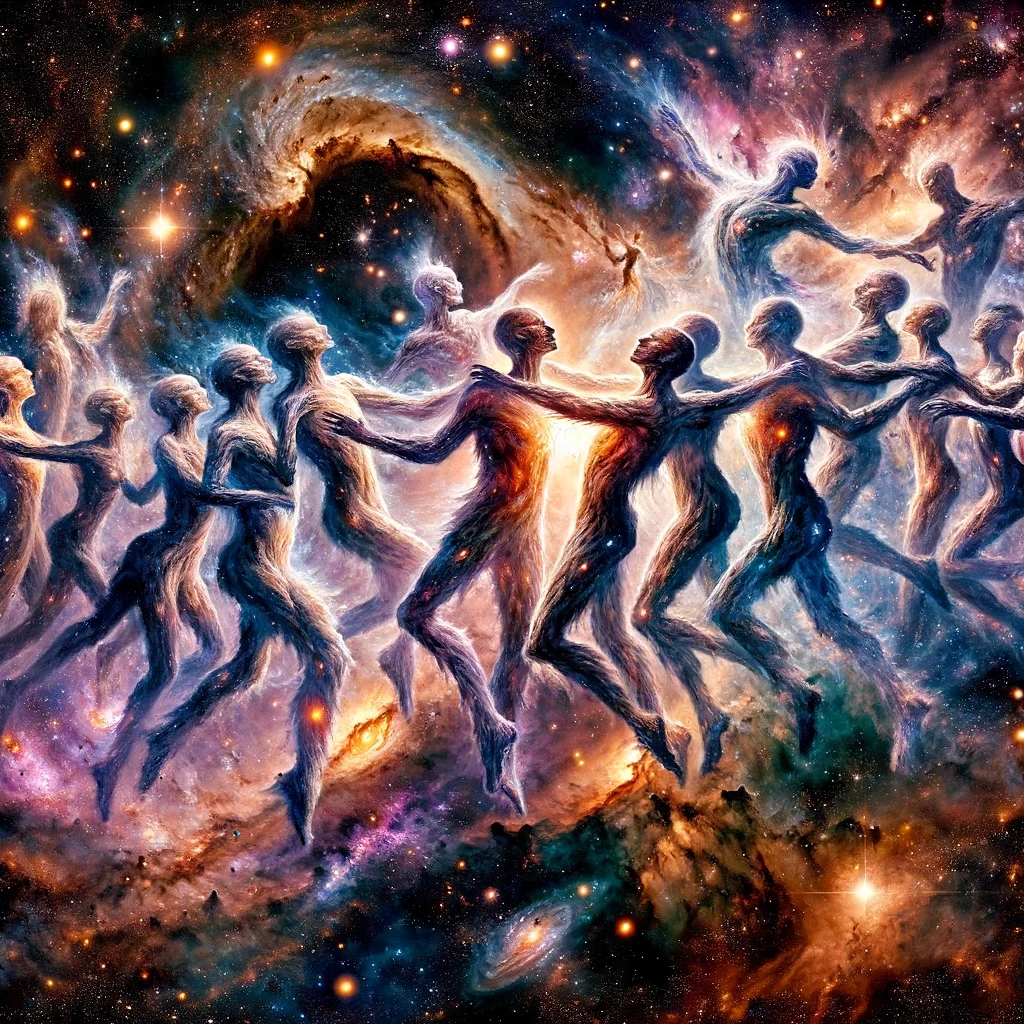As I gaze into the night sky, a question that has long puzzled humanity once again surfaces in my mind — the Fermi Paradox. This paradox, simply put, questions why, in the vast expanse of the universe, we have yet to find evidence of extraterrestrial life. It’s a thought that has led me down a rabbit hole of reflection, challenging the very notions of life as we understand it and our place within the cosmic dance.
Firstly, the definition of “life” itself is a subject of much debate within the scientific community. The conditions that are considered necessary for life to exist are met not just on Earth but potentially on countless other planets. Yet, when we consider entities that defy our traditional criteria of life—such as viruses, fire, and even certain rock formations—it becomes clear that our understanding of life is, in many ways, constrained by our own human-centric perspective.
This perspective was eloquently challenged by a colleague of mine, who remarked, “we humans want to impose some sort of order among all this chaos.” This statement resonated with me deeply, highlighting how our attempts to categorize and understand the universe are limited by our human experience and knowledge. Our methods of searching for life, with tools like telescopes, only allow us to examine a mere fraction of the universe’s vastness—a limitation, akin to examining a single spoonful of ocean water and concluding that no fish exist.

Moreover, the idea that humans possess the highest form of consciousness is, when considered in the cosmic context, remarkably egocentric. This brings me to the fascinating philosophical perspective of panpsychism, which posits that consciousness is not exclusive to humans or even life as we traditionally define it, but is a universal feature inherent in all aspects of the universe. Panpsychism invites us to consider that everything in the universe, from the smallest particle to the largest celestial body, possesses some form of consciousness or mental aspect.
Reflecting on panpsychism, let’s consider the human body as a metaphor for the universe. Just as organs within our body function in a complex feedback loop, conscious enough to demand action (such as the heart beating or the lungs breathing) without explicit awareness of the entirety of the body, we might similarly be part of a larger cosmic organism. Our planet, our solar system, or even our galaxy could be akin to a single organ within a vastly more extensive entity of consciousness. This perspective radically shifts our understanding of our place in the universe, suggesting that we are integral to a grander scheme of consciousness that we can barely begin to comprehend.
This brings me to the heart of my perspective against the pessimistic interpretation of the Fermi Paradox — that we are alone in the universe. Such a view, I believe, is not only limited but ignores a plethora of possibilities that our current understanding and technology cannot yet fully grasp.
Consider, for instance, the limitations imposed by the speed of light. An alien civilization observing Earth from afar might see our planet as it was millions of years ago, populated by dinosaurs, and thus deem us an uninteresting or uninhabited world. Or, perhaps, intelligent life exists in forms so different from our own — perhaps sentient auras of light/energy?! — that their methods of communication or interaction are beyond our comprehension, much like how we overlook the intricate lives of ants beneath our feet.
These possibilities suggest not only that the universe is teeming with life, but that our definitions, methods, and even our imaginations are currently inadequate to fully grasp the nature of existence beyond our planet. It’s a humbling reminder that the universe is far more incredible and mysterious than we can currently comprehend.
In conclusion, the Fermi Paradox should not be a source of cosmic loneliness, but rather a beacon, urging us to expand our understanding, our definitions of life, and our place within the universe. As we continue to explore the cosmos, let us do so with open minds and hearts, ready to embrace the myriad forms of existence that surely await us beyond the stars. Through the lens of panpsychism, we are reminded that consciousness may not be our sole domain but a shared quality of the cosmos, encouraging us to seek kinship with the unknown.
